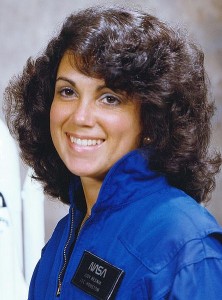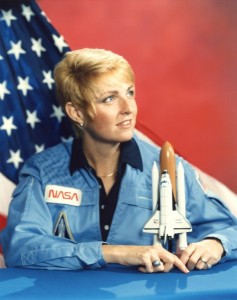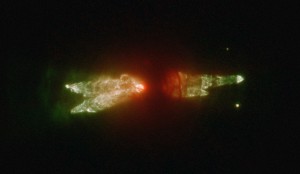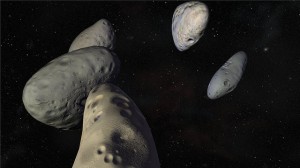Posted by Nicky Drayden on Oct 18, 2014 in
Reviews Clarkesworld
http://clarkesworldmagazine.com/novakova_10_13/
Author Website: https://sites.google.com/site/julienovakova/english-versio
Some eleven thousand years from now, Chiara and her fellow Jovian composers are looking to create the greatest symphony of all time, and they think they will find the material they need to do so on the dwarf planet Sedna. What they discover is not one, but two time capsules buried deep beneath the layers of ice. Two ships, one human and the other decidedly not. Theodora, co-pilot of the human ship, has long since passed on, but has left a detailed assessment of her short time upon the Sedna where hopefully someone, somewhere, from sometime will find it:
Theodora was descending through the tunnel in the ice. It was dark except the light from LEDs on her suit and the reflectors from the top of the shaft. Her rope was winding down gradually. She could see the drilling device below now.
The light above seemed faint when she reached the probe. It took her only an hour to get it operational again. She smiled and let the winch pull her up again.
Just as she neared the surface, she heard a noise in the speakers of her suit. “Dimitri?” she spoke. “What is it?”
“Have to . . . come down . . . ”
She barely understood him through the static.
“Dimitri!”
For a while, she heard nothing. Then the static returned—and after that, Dimitri’s distorted voice. “ . . . have to land.” Cracking and humming. Theodora tried to amplify the sound frantically. “ . . . send you the coordinates . . . hope it works out . . . ”
A file found its way through the transmission. It was a technical report generated by Kittiwake. Theodora opened it and glimpsed through it quickly.
“Oh no,” she whispered.
I liked the surreal feel of this piece–composers from Jupiter looking for musical inspiration in ancient ship wreckage? Sure, sign me up. For me, it is a little difficult to project what humanity will be like eleven thousand years in the future, but maybe we’ll be a lot like we are today, just with fancier gadgets, weirder tastes in music, and hopefully enough technological advancement to escape the clutches of what is apparently one cursed dwarf planet. Still, it seems like there is something deeper to this story. It manages to hold tension, despite the fact that we know Theodora will not make it very early on. I found myself hoping for her safe escape anyway, tensing at impending dangers. She is a hero, working diligently at her job, so focused on leaving some sort of legacy in the wake of personal disaster, hoping that her voice will be heard and that her story will be helpful. It’s a bittersweet story, probably more bitter than sweet, and the ending might leave you a little misty eyed.
 REAL Women in Space
REAL Women in Space
Judith Resnik
First Jewish-American in space
Died in the Challenger disaster
STS-41-D (Aug. 30, 1984)
STS-51-L (Jan. 28, 1986)
Creative Commons Tags: Clarkesworld, Far Future, Short Story, Short Women in Space, Space Travel
Posted by Nicky Drayden on Oct 11, 2014 in
Reviews Clarkesworld
http://clarkesworldmagazine.com/mohanraj_06_14/
Author Website: www.mamohanraj.com
Chaurin has left the tunnel-cities of his homeworld to find the remains of his brother, killed at a gaudy human city on the planet Kriti. He doesn’t understand what drove his brother to want to live among the humans, so light and slight, and easy to dispose of. While he is not here to exact his revenge, the thought does cross his mind. He’s more nervous about the state of his brother’s body, six months after his death. Chaurin has gotten here as fast as he could manage, but is devastated when he is presented with the remains in a small box:
Chaurin reached out a hand, and then pulled it back. He’d thought he was prepared, but the shock of seeing the box made his mouth go dry, so that he had to swallow before he could speak. “Is this all there is? Was he . . . cremated?” The word was unfamiliar in Chaurin’s mouth, but he had learned it, just in case. He hadn’t known what he would find on arrival, so had studied human death customs on the long journeys between Jump points. He hadn’t been able to afford a luxury cruise; the clan had barely scraped together enough to buy him passage on a freighter. They had been afraid to wait longer than they had to, afraid of what would happen to Gaurav’s remains.
Amara is one of the humans that had been spared from death due to Gaurav’s bravery. She’s still trying to process the senseless violence and loss of life, and has stepped away from her career in law enforcement to tend to a garden at the memorial site, using her hands to make things grow in Kriti’s stingy soil. When a broad and terse saurian suddenly stands before her, she thinks she’s seeing Gaurav again…no not him, but strikingly similar, and his imposing look suggests he means business.
Mary Anne does an exquisite job weaving together the narratives of these two characters. Each offers a glimpse of the other and the world surrounding them as filtered through their views with all the glory of their cultural baggage. Even more impressive are the turns this story takes. Just when you think you know where it’s going–bam! Didn’t see that coming. The writing is seamless, allowing me to immerse myself in the world, right up until the sad moment I noticed my browser’s scroll bar coming to the end of the page. This is a story of how death and destruction can tie strangers together, even if they’re species from different sides of the cosmos. Some things truly are universal–from the act of bringing life into this world, to the act of commemorating a life extinguished. The customs may be vastly differ on the outside, and they may even seem barbaric filtered through one’s own cultural lenses, but the emotions that rim the heart do no waver. I think it is important to be often reminded that the way one sees things is not the right way, but only a way, so give it a read, or even a re-read. This is one you don’t want to miss.
Tags: Aliens, Clarkesworld, Colonies, Nicky's Pick, Short Story, Short Women in Space
Posted by Nicky Drayden on Oct 7, 2014 in
Reviews Clarkesworld, August 2013
http://clarkesworldmagazine.com/macfarlane_08_13/
Author Website: www.alexdallymacfarlane.com
Short Women in Space, Review # 7
In Found, a merchant peddling spices among a collection of asteroid colonies is making one last run before life there changes forever. Colony life is tough, as evidenced by what the merchant encountered at the last asteroid:
I had found its interior spaces open and airless, blast-marked, most of its equipment broken or gone, debris—shards of metal, rock, old synth materials, blackened bits of bone—still lodged in some deep crannies.
At the sight of the devastation, a thought of Aagot slips past the merchant’s mind. Had Aagot been there, a man who the merchant had once shared a juniper berry flavored kiss with? There is a romance story somewhere, lost in the spaces between asteroids, but there is something of even more significance that has already been found: the colony itself. And they didn’t even know they were lost. The people of Cai Nu are soon coming to save the inhabitants of the asteroids, victims of an intergalactic diaspora gone wrong.
Okay, I’ll admit it. I am still a bit clueless at using alternate pronouns, and have in the past gone through impressive feats of word maneuvering to avoid it in reviews. When reading first person pieces, it seems I go through a mental process of trying to figure out what gender box to put the narrator into. When it is not initially obvious, we become attuned to hints, like the mention of the man that has been kissed by the narrator. Of course, at this point, I have trained myself not to jump to any conclusions based on this alone, but it narrows the field, if only marginally. But why is it so important to for us to put such labels on characters? Why limit our spices to salt and pepper, when there are cinnamon and thyme and cumin and bay and star anise…each different and delectable in their own signature ways?
I don’t know, so maybe by “Short Women in Space”, I really am looking for gender diversity/inclusiveness in space, or maybe something even broader that I cannot yet articulate, but I am interested to see where I come out on the other side of this thing. One thing I do know is that sometimes labels are important, especially when you keep the cinnamon and cumin next to each other on the spice rack. Trust me, cumin in your oatmeal doesn’t taste nearly as appetizing as it sounds…
 REAL Women in Space
REAL Women in Space
Millie Hughes-Fulford
First female payload specialist
STS-40 (Jun. 5, 1991)
Creative Commons
Tags: Asteroids, Clarkesworld, Colonies, Short Story, Short Women in Space





